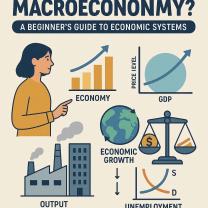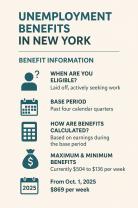Do banks offer payday loans?
Traditional banks typically do not offer payday loans in the same way that payday loan storefronts or online lenders do. Payday loans are short-term, high-interest loans designed to provide quick cash to borrowers who are often facing financial emergencies. These loans are known for their high fees and short repayment periods.
Banks, especially traditional ones, are more likely to offer personal loans, lines of credit, or other forms of credit that have more favorable terms and conditions compared to payday loans. Personal loans from banks usually come with lower interest rates, longer repayment periods, and a more structured repayment schedule.
If you're in need of a small, short-term loan, it's advisable to explore alternatives before considering a payday loan. Some options may include:
Personal Loans from Banks or Credit Unions:
- As mentioned, traditional financial institutions may offer personal loans with more favorable terms than payday loans.
Credit Card Cash Advances:
- If you have a credit card, you may be able to get a cash advance. While this also comes with fees and often higher interest rates than regular purchases, it can be a less expensive option than a payday loan.
Credit Union Payday Alternative Loans (PALs):
- Some credit unions offer PALs, which are short-term, small-dollar loans with lower interest rates than traditional payday loans.
Emergency Assistance Programs:
- Check with local nonprofit organizations, charities, or community assistance programs that may provide financial help or low-interest loans to individuals in need.
Negotiate with Creditors:
- If you're facing financial difficulties, consider contacting your creditors to discuss your situation. Some creditors may be willing to work out a temporary payment plan.
It's important to be cautious with payday loans due to their high costs and potential to lead to a cycle of debt. Before pursuing any type of loan, carefully review the terms and consider the overall impact on your financial well-being. If you're unsure about your options, seek advice from a financial counselor or advisor.
Here are the answers to your questions about payday loans from banks:
Do traditional banks provide payday loan services?
Traditional banks typically do not offer payday loans in the traditional sense. Payday loans are typically offered by non-bank lenders, such as storefront payday loan companies or online lenders. This is because payday loans are considered to be high-risk loans with high interest rates and short repayment terms, which can lead to significant financial problems for borrowers.
What are the typical terms and conditions of payday loans offered by banks?
In the rare cases where banks do offer payday loans, the terms and conditions may vary depending on the bank. However, some typical features of bank payday loans include:
Loan amounts: Bank payday loans typically range from $100 to $500.
Repayment terms: Bank payday loans typically have a repayment term of two weeks to one month.
Interest rates: Bank payday loans typically have interest rates that are lower than those offered by non-bank lenders, but they are still considered to be high.
Fees: Bank payday loans may have additional fees, such as origination fees and late payment fees.
How do banks' payday loan offerings differ from those of other lending institutions?
The main difference between banks' payday loan offerings and those of other lending institutions is that banks may offer lower interest rates and more flexible repayment terms. However, banks may also have stricter eligibility criteria and may require more documentation than non-bank lenders.
Are there specific eligibility criteria for obtaining a payday loan from a bank?
Eligibility criteria for bank payday loans vary depending on the bank. However, some common eligibility requirements include:
Minimum age: Borrowers must be at least 18 years old.
Stable income: Borrowers must have a steady source of income.
Active bank account: Borrowers must have an active bank account.
Good credit history: Borrowers may need to have a good credit history to qualify.
How do banks regulate and manage risks associated with offering payday loans?
Banks that offer payday loans typically have internal policies and procedures in place to regulate and manage risks. These policies may include:
Limiting loan amounts: Banks may limit the amount of money that can be borrowed with a payday loan.
Requiring borrowers to demonstrate ability to repay: Banks may require borrowers to demonstrate that they can afford to repay the loan before approving it.
Having clear collection policies: Banks may have clear policies in place for collecting on defaulted payday loans.
Overall, banks are generally more cautious about offering payday loans than non-bank lenders. This is because banks are subject to stricter regulations and have a greater reputational risk to consider.













